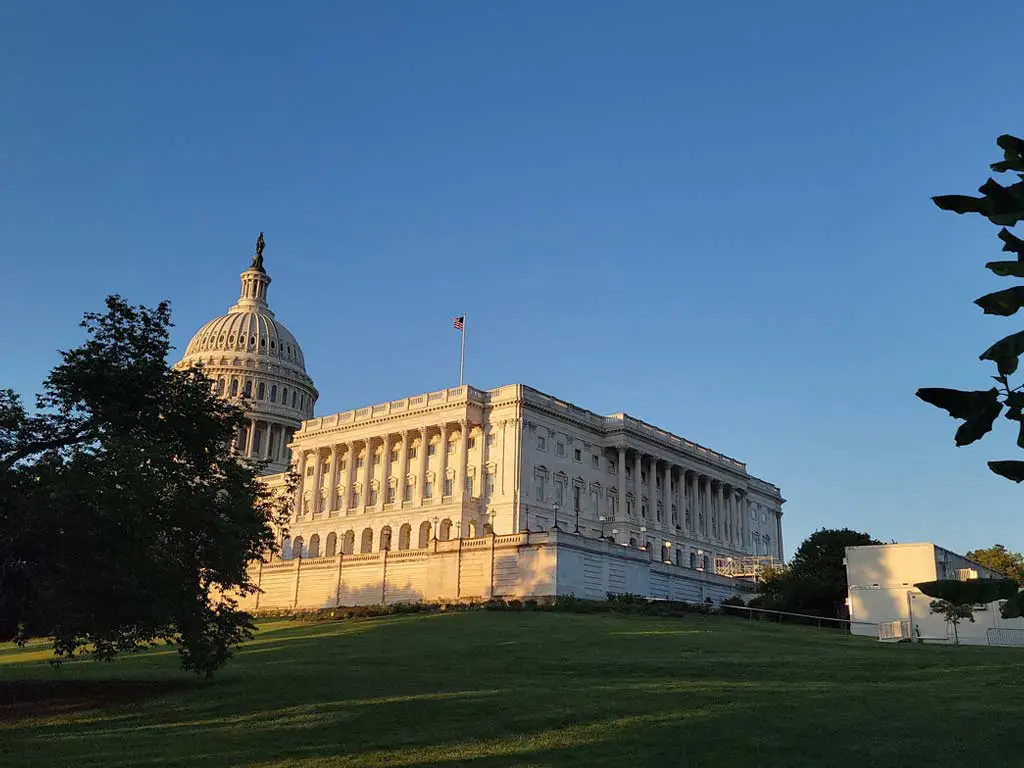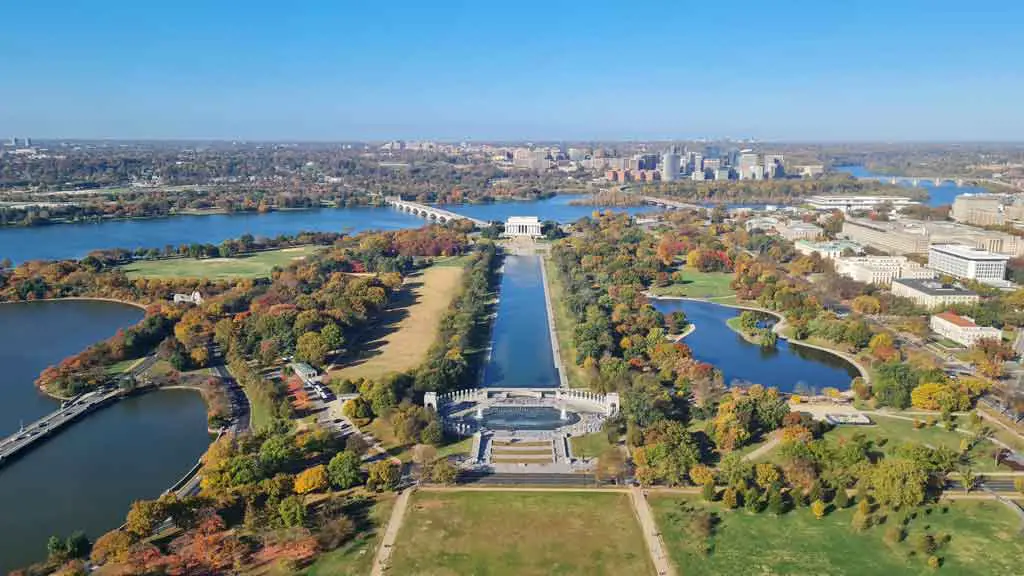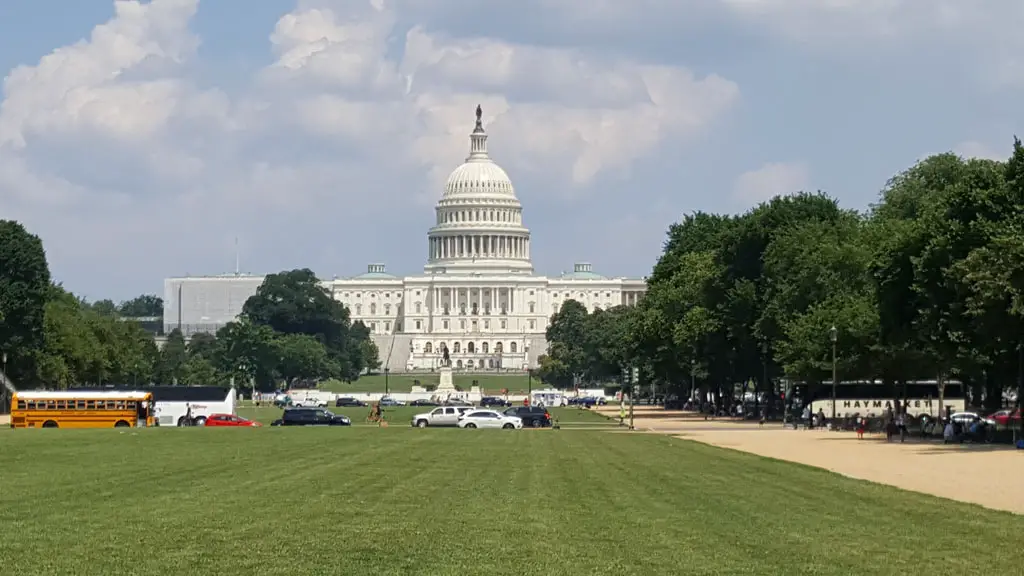Situated along the Potomac River, Washington, DC, holds a unique title that often sparks curiosity: the District of Columbia.
Many wonder why the nation’s capital bears this distinctive name. Unraveling the origins of this moniker unveils a fascinating tale of history and symbolism.
The story behind Washington, DC’s name dates back to 1790 when the Residence Act established a new federal district.
Named after Christopher Columbus, the Italian explorer credited with discovering the Americas, the District of Columbia signifies a nod to America’s past and its connection to the broader world.
Understanding the reasons behind Washington, DC’s designation as the District of Columbia sheds light on the city’s rich heritage and the intricate tapestry of influences that have shaped its identity.

Historical Background of Washington DC
Washington, DC has a rich historical background that dates back to the Residence Act of 1790. Named after Christopher Columbus, the Italian explorer, the choice of the name reflects the city’s connection to American history and global affairs.
Delving into the origins of Washington, DC, and the emergence of the title “District of Columbia” provides insights into the city’s heritage and the diverse influences that have contributed to shaping its identity.
Origin of “Washington” in the Name
The name “Washington” in Washington, DC, honors the first President of the United States, George Washington.
The city was established as the capital of the United States in 1790, and its name pays tribute to President Washington’s leadership and contribution to the nation’s founding.
This name symbolizes the importance of the city as the political hub of the country and its role in shaping American democracy.
Being known as the District of Columbia, Washington, DC, highlights its unique independent status as a federal district.
This title reflects the city’s special designation under the U.S. Constitution, emphasizing its distinct governance separate from any state jurisdiction.
Emergence of “District of Columbia”
The term “District of Columbia” originated from a combination of the name “Columbia” – a poetic name for the United States – and the word “district” which refers to a defined area.
The Residence Act of 1790 established the federal district along the Potomac River to serve as the seat of the US government.
The designation “District of Columbia” emphasizes the federal nature of the city and its unique status as a separate entity from the states, governed by the Congress of the United States.
The Planning and Design of the Capital

Exploring the meticulous planning and design of the capital city of Washington, DC unveils the strategic vision behind its layout and architecture.
Key individuals played crucial roles in shaping the cityscape, ensuring both functionality and symbolism were integrated seamlessly into its design.
Role of Pierre L’Enfant
Pierre L’Enfant, a French-born architect, was instrumental in designing the capital city as envisioned by George Washington and Thomas Jefferson.
L’Enfant’s innovative urban plan incorporated wide avenues, open spaces, and grand boulevards, reflecting the ideals of a modern, planned city.
His vision aimed to create a symbolic and practical center for the nation, emphasizing the importance of civic and governmental structures in the city’s layout.
This vision was further solidified with the establishment of the federal district, named the District of Columbia, to serve as the seat of the United States government.
The name ‘Columbia’ was chosen as a nod to Christopher Columbus, while ‘District’ emphasized its independent and unique governance status.
Significance of the Federal City Design
The design of Washington, DC as a federal city holds immense significance in American history and governance.
The layout, with its iconic landmarks such as the Capitol Building, the White House, and the National Mall, reinforces the city’s role as the seat of the federal government.
The intentional arrangement of government buildings and monuments underscores the principles of democracy, power distribution, and national identity, embodying the ideals upon which the United States was founded.
The name “The District of Columbia” was chosen to honor explorer Christopher Columbus and the Columbia name used poetically for the United States. It represents the unique status of Washington, DC as a federally controlled district, distinct from any state.
The Naming Decision

The naming of Washington, DC as the District of Columbia was a deliberate decision made with historical significance and symbolism in mind.
Why “District”?
The term “District” in the city’s name refers to the specific area set aside to serve as the nation’s capital. By using the term “District,” the framers of the city aimed to create a clear distinction between the seat of the federal government and the individual states.
This deliberate choice highlights Washington DC’s unique status as a federally administered city that is not part of any state.
It emphasizes the city’s special purpose and governance separate from state authority. Furthermore, the term “Columbia” in Washington DC’s name pays tribute to Christopher Columbus, the explorer credited with discovering the Americas.
The combination of “District” and “Columbia” underscores the city’s significant role as the capital of the United States and its connection to the country’s history and founding principles.
Why “Columbia”?
The choice of “Columbia” in the city’s name was inspired by Christopher Columbus, the famed explorer who played a pivotal role in the discovery of the Americas.
By incorporating “Columbia,” Washington, DC pays homage to the exploration and establishment of the New World, embracing a sense of discovery and new beginnings in its identity.
The name “District of Columbia” was chosen to honor Christopher Columbus, the explorer credited with the discovery of the Americas.
By adopting “Columbia,” Washington, DC celebrates exploration and new beginnings, reflecting a theme of discovery in its essence.
Impact and Evolution of the Name
The name “District of Columbia” has evolved over time, shaping perceptions and reflecting changing societal dynamics.
Changes in Perception Over Time
The perception of the name “District of Columbia” has shifted over the years. Initially chosen to symbolize the federal nature of the capital city, the term has garnered additional layers of meaning.
Over time, it has come to represent not just a geographical location, but also a nexus of political power and historical significance.
The evolution of perceptions surrounding the name mirrors the evolving role of Washington, DC, as the epicenter of American governance and history.
Understanding the significance of why Washington, DC is called the District of Columbia involves recognizing its role as more than just a geographical area.
It embodies a complex blend of political influence and historical importance that has shaped its identity over time.
Current Implications of the Name
Today, the name “District of Columbia” holds profound implications in the modern context. It serves as a constant reminder of the city’s unique status as a federal district distinct from the states, underscoring its pivotal role in shaping national policies and upholding the principles of democracy.
Moreover, the name continues to evoke the spirit of exploration and new beginnings associated with Christopher Columbus, encapsulating the ongoing narrative of progress and discovery within the capital’s identity.
It also symbolizes the blend of tradition and innovation that defines Washington D.C. as a dynamic hub of political power and cultural significance in the United States, highlighting its historical roots while embracing its ever-evolving role on the national stage.
Frequently Asked Questions
Why is Washington, D.C. named District of Columbia?
Washington, D.C. was named as District of Columbia to honor explorer Christopher Columbus and the federal city was named after George Washington.
Is Washington, D.C. owned by Columbia?
Washington, D.C. is under the exclusive control of the federal government according to the District of Columbia Organic Act of 1801.
Do residents of DC pay taxes?
Yes, residents of Washington, D.C. pay federal taxes, serve in the military, start businesses, contribute to the national economy, and are subject to federal laws.
Is DC considered the south?
Historically, Washington, D.C. is considered part of the South as it lies below the Mason-Dixon line and west of the Mississippi River.
What are the 7 U.S. territories?
American Samoa, Commonwealth of the Northern Mariana Islands, Guam, Federated States of Micronesia, Republic of Palau, Republic of the Marshall Islands.
Conclusion
The evolution of the name “District of Columbia” reflects a deliberate homage to Christopher Columbus, symbolizing new beginnings and the spirit of discovery.
Over time, this name has come to embody not just a geographical location but a center of political power and historical significance.
Washington, DC’s unique federal status is intricately tied to its name, emphasizing its pivotal role in shaping national policies and embodying democratic principles established by historical figures like Pierre L’Enfant.
By honoring both George Washington and Christopher Columbus in its name, the District of Columbia encapsulates a narrative of tradition, exploration, and governance that continues to resonate in the fabric of American identity.
The District of Columbia’s name pays tribute to Christopher Columbus, symbolizing discovery and new beginnings, reflecting its role as a political hub embodying democratic principles and rich history with ties to figures like Pierre L’Enfant.




Allison Brice